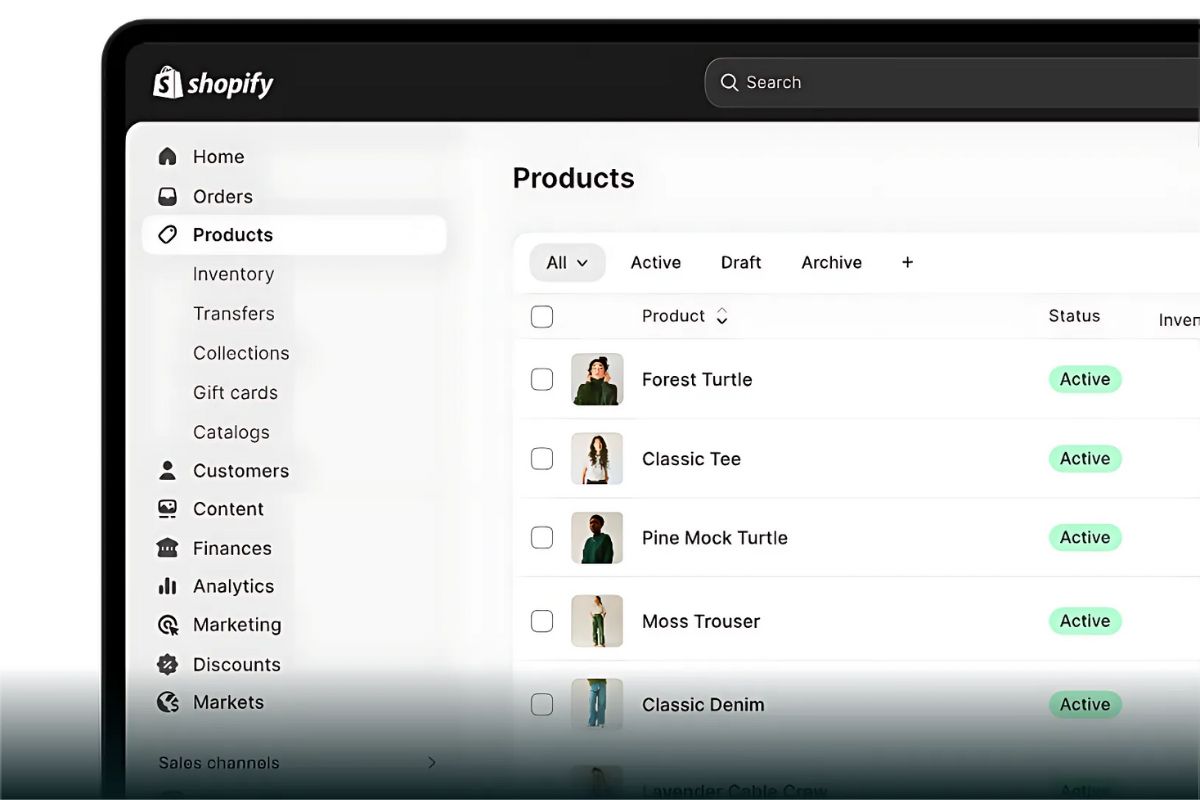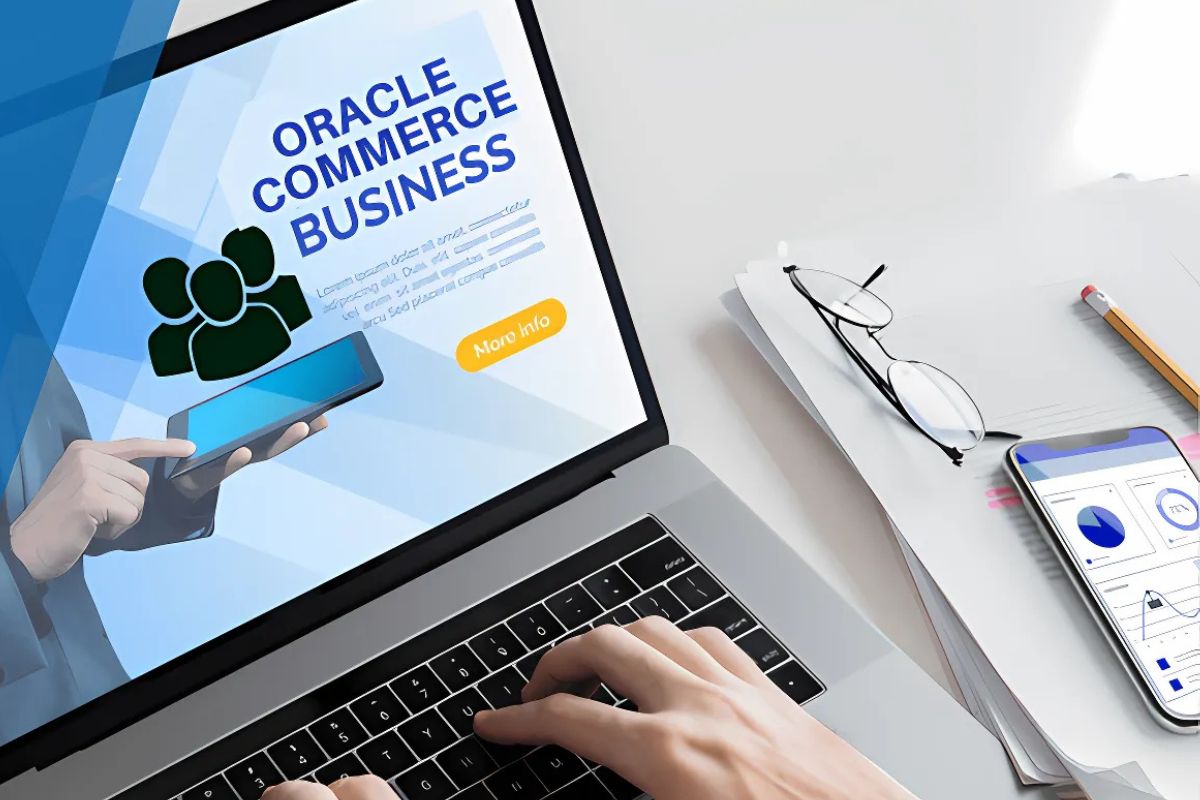Choosing the Best Enterprise eCommerce Platforms is critical for any enterprise-level business. An effective platform must support the complex needs of large-scale operations, including scalability, robust integrations, and enhanced security.
Table of Contents
This guide explores the top eCommerce platforms for enterprises, key factors to consider, and tips for making the best choice to support your company’s growth and success.
Key Factors to Consider When Choosing an Enterprise eCommerce Platform
Scalability and Performance
Enterprises need platforms that can handle high volumes of traffic, products, and transactions. Scalability is essential to maintain performance as your business grows or during peak sales events.
Customization and Flexibility
Every business has unique requirements, and enterprise eCommerce platforms should be customizable. Look for platforms that offer flexibility in design, features, and the ability to integrate with other systems to meet specific business needs.
Security and Compliance
Large enterprises handle vast amounts of data, making security and compliance a top priority. Choose platforms with strong security measures, such as SSL certificates, PCI-DSS compliance, and GDPR features, to protect customer data and ensure regulatory compliance.
Integration Capabilities
Enterprise eCommerce platforms need to integrate with other business systems like CRMs, ERPs, and marketing automation tools. This allows seamless data flow across departments, enabling a more efficient operation and a unified view of the customer.
Pricing and Total Cost of Ownership
Cost can vary significantly among platforms. Consider both the upfront costs and long-term expenses, such as transaction fees, hosting, security features, and any costs associated with customization.
Customer Support and Resources
Reliable customer support and access to resources are critical, especially for enterprises handling complex operations. Ensure the platform offers support channels that meet your needs, like 24/7 assistance or a dedicated account manager.
Top Enterprise eCommerce Platforms
| Rank | Platform | Key Features | Target Audience | Notable Brands Using It |
|---|---|---|---|---|
| 1 | Shopify Plus | Scalable, high-performance, customizable, robust integration options | Mid-market to large enterprises | PepsiCo, Heinz, Gymshark |
| 2 | Magento Commerce | Open-source, highly customizable, strong B2B and B2C capabilities | Enterprises with complex needs | Coca-Cola, Ford, Land Rover |
| 3 | BigCommerce Enterprise | Omnichannel capabilities, flexible APIs, multi-currency & multi-site | High-growth businesses, global retailers | Toyota, Skullcandy, Ben & Jerry’s |
| 4 | Salesforce Commerce Cloud | AI-powered, seamless integrations, personalized customer experiences | Large-scale enterprises, global brands | Adidas, Puma, Lacoste |
| 5 | SAP Commerce Cloud | Comprehensive ERP integration, extensive B2B/B2C features | Large enterprises with complex workflows | Siemens, Yamaha, Microsoft |

Shopify Plus
Key Features and Advantages
Shopify Plus is known for its scalability, ease of use, and robust ecosystem. It provides tools for SEO, marketing, and multichannel selling, along with a large app store that allows you to expand functionality easily. Shopify Plus also offers built-in automation features, streamlining repetitive tasks and enabling businesses to focus on growth.
Best For
Businesses experiencing rapid growth and seeking a user-friendly platform that can be managed without extensive technical expertise.
Pricing
Starting at around $2,000 per month, Shopify Plus is cost-effective for companies needing extensive scalability without complex customizations.
Magento Commerce (Adobe Commerce)
Key Features and Advantages
Magento (Adobe Commerce) offers unmatched flexibility and customization, making it ideal for enterprises needing complete control over the shopping experience. Its open-source nature allows businesses to tailor every aspect of the platform, while its robust API makes it easy to integrate with other systems.
Best For
Enterprises with specific, unique needs that require a highly customizable platform and extensive third-party integration.
Pricing
Costs vary, typically starting around $22,000 per year, depending on the business’s scale and customization needs.
BigCommerce Enterprise

Key Features and Advantages
BigCommerce Enterprise is known for its multichannel capabilities and API-driven architecture, which allows for advanced integrations. Its SEO-friendly features and flexible API make it a strong choice for brands looking to reach a wide audience and streamline complex workflows.
Best For
Enterprises focused on multi-channel sales and those seeking an affordable yet powerful solution.
Pricing
Starting at approximately $1,000 per month, BigCommerce Enterprise is a cost-effective choice for businesses prioritizing multi-channel reach.
The all-in-one Platform to start a
Print on Demand & Dropshipping Business.
Salesforce Commerce Cloud
Key Features and Advantages
Salesforce Commerce Cloud provides advanced CRM capabilities and AI-powered personalization, making it a powerful choice for enterprises focused on customer experience. The platform’s AI-driven insights enable personalized experiences that increase engagement and conversions.
Best For
Companies focused on delivering personalized customer experiences and with a strong emphasis on CRM.
Pricing
Pricing is custom-based and varies according to business requirements, typically on the higher end of the scale.
Oracle Commerce

Key Features and Advantages
Oracle Commerce is built to handle complex, data-intensive operations and offers extensive B2B and B2C capabilities. With its advanced data handling, the platform is ideal for large enterprises requiring deep data insights and end-to-end solutions.
Best For
Organizations with complex, data-centric operations and large-scale product inventories.
Pricing
Pricing varies based on customization and integration requirements, generally starting at several thousand dollars per month.
SAP Commerce Cloud
Key Features and Advantages
SAP Commerce Cloud is particularly effective for enterprises with large, global operations. It provides strong integration with ERP systems, allowing for comprehensive customer data management and streamlined global eCommerce operations.
Best For
Businesses that require robust integration with SAP products and advanced data processing capabilities.
Pricing
Starting from approximately $5,000 per month, depending on customization and integration needs.
Comparing Enterprise eCommerce Platforms
| Feature/Platform | Shopify Plus | Magento Commerce | BigCommerce Enterprise | Salesforce Commerce Cloud | SAP Commerce Cloud |
|---|---|---|---|---|---|
| Target Audience | Mid-market to large enterprises | Large enterprises with complex needs | High-growth, omnichannel businesses | Large-scale global enterprises | Large enterprises with complex workflows |
| Customization | Flexible, but more templated than open-source | Highly customizable (open-source) | Flexible, but less customizable than Magento | Highly customizable with developer tools | Highly customizable, complex integration |
| Scalability | High scalability, suitable for global expansion | Highly scalable, especially with open-source options | Scalable with strong multi-site capabilities | Extremely scalable, supports global businesses | Highly scalable with ERP/CRM integration |
| B2B/B2C Capabilities | Strong B2C, limited B2B features | Strong B2B and B2C features | Excellent for both B2B and B2C | Strong B2C and B2B with personalization | Advanced B2B/B2C features and workflows |
| Omnichannel Support | Yes (POS, marketplaces, social channels) | Yes (via integrations) | Yes (integration with multiple sales channels) | Yes (with Salesforce ecosystem) | Yes (with integrated SAP solutions) |
| Ease of Use | User-friendly, no technical expertise required | Requires development and technical expertise | User-friendly, but more complex than Shopify Plus | Highly intuitive, but technical expertise required | Requires technical expertise |
| AI/Personalization | Basic personalization, apps for advanced | Advanced personalization with extensions | Advanced AI-driven recommendations | Advanced AI-powered personalization | Advanced AI and machine learning capabilities |
| Mobile-First Design | Fully responsive, mobile-optimized | Fully responsive, mobile-optimized | Mobile-first design and responsive layouts | Mobile-first, responsive, and app integrations | Mobile-optimized, with strong app integration |
| Integration with ERP/CRM | Limited (via third-party apps) | Strong (via extensions) | Integrates well with ERPs and CRMs | Deep integration with Salesforce CRM | Seamless integration with SAP ERP systems |
| Security | PCI-DSS compliant, strong security features | Highly secure, with additional customizations | Strong security with frequent updates | Enterprise-grade security (SSL, PCI DSS) | Enterprise-level security with compliance |
| Cost | Subscription-based (varies by sales volume) | High upfront cost, ongoing maintenance costs | Subscription-based (varies by needs) | Subscription-based (premium pricing) | High upfront cost, tailored pricing model |
| Global Reach (Multi-Country) | Multi-currency, multi-language support | Multi-currency, multi-language support | Multi-currency, multi-site support | Multi-currency, multi-region support | Strong multi-country/multi-language support |
| Support | 24/7 support, dedicated account manager | Community support, extensive developer network | 24/7 support with dedicated account manager | 24/7 support, dedicated success manager | 24/7 support, dedicated SAP team |
| Notable Brands Using It | Gymshark, Heinz, PepsiCo | Ford, Coca-Cola, Land Rover | Ben & Jerry’s, Toyota, Skullcandy | Adidas, Puma, Lacoste | Siemens, Yamaha, Microsoft |
Ease of Use and Learning Curve
Some platforms, like Shopify Plus and BigCommerce, are easier to use and come with intuitive dashboards. In contrast, platforms like Magento and SAP may require more technical knowledge or developer support.
Performance and Reliability
For high-traffic enterprises, performance and reliability are crucial. Platforms like Salesforce Commerce Cloud and Oracle Commerce are designed to handle large volumes without compromising speed or user experience.
Customization and Flexibility
Magento stands out for customization, as it’s open-source and highly flexible, while SAP and Oracle Commerce also offer deep customization for large-scale businesses.
Security Features
Salesforce Commerce Cloud, SAP, and Oracle are known for their rigorous security measures, ideal for enterprises managing sensitive data.
Customer Support and Community Resources
Most platforms provide 24/7 support, but platforms like Salesforce and Shopify Plus go the extra mile by offering dedicated account managers and comprehensive support resources.
Tips for Selecting the Right Platform for Your Business

Define Your Business Goals and Requirements
Identify your business’s specific needs, from scale to technical requirements, to match a platform’s features with your objectives.
Evaluate Integration and Scalability Needs
Ensure the platform can integrate with your existing systems (e.g., CRM, ERP) and that it can scale with your projected growth.
Consider the Total Cost of Ownership (TCO)
Look beyond upfront costs to account for hidden expenses, such as transaction fees, hosting, and customization, for an accurate view of long-term costs.
Seek Out User Reviews and Case Studies
Research customer testimonials and industry-specific case studies to see how the platform performs for similar businesses.
Take Advantage of Free Trials and Demos
Most platforms offer free trials or demos, which can provide insights into functionality and ease of use before committing to a long-term investment.
FAQs
What are the most critical features of an enterprise eCommerce platform?
Key features include scalability, customization options, integration capabilities, and security measures.
How much does an enterprise eCommerce platform typically cost?
Costs vary widely, typically ranging from $1,000 to $25,000+ per month, depending on features, scale, and customization needs.
Can an eCommerce platform integrate with my existing CRM or ERP system?
Yes, many enterprise platforms are designed for integration with systems like CRM and ERP to streamline data flow and operations.
How can I ensure data security and compliance on an eCommerce platform?
Look for platforms with robust security features, such as SSL, PCI-DSS compliance, and GDPR compliance, and ask about specific security certifications.
Is it possible to migrate from one eCommerce platform to another later on?
While migration is possible, it can be complex. Make sure to discuss migration options with potential providers if you think you may need to switch platforms in the future.
Conclusion
Selecting the best enterprise eCommerce platform is essential for large businesses looking to scale effectively and provide seamless, secure customer experiences. Consider factors like scalability, customization, integration needs, and support when making your choice. The right platform will align with your business goals, help streamline operations, and support future growth, providing a solid foundation for success in today’s competitive eCommerce landscape.



Sign up